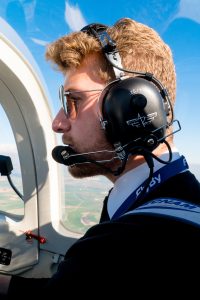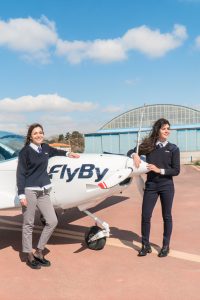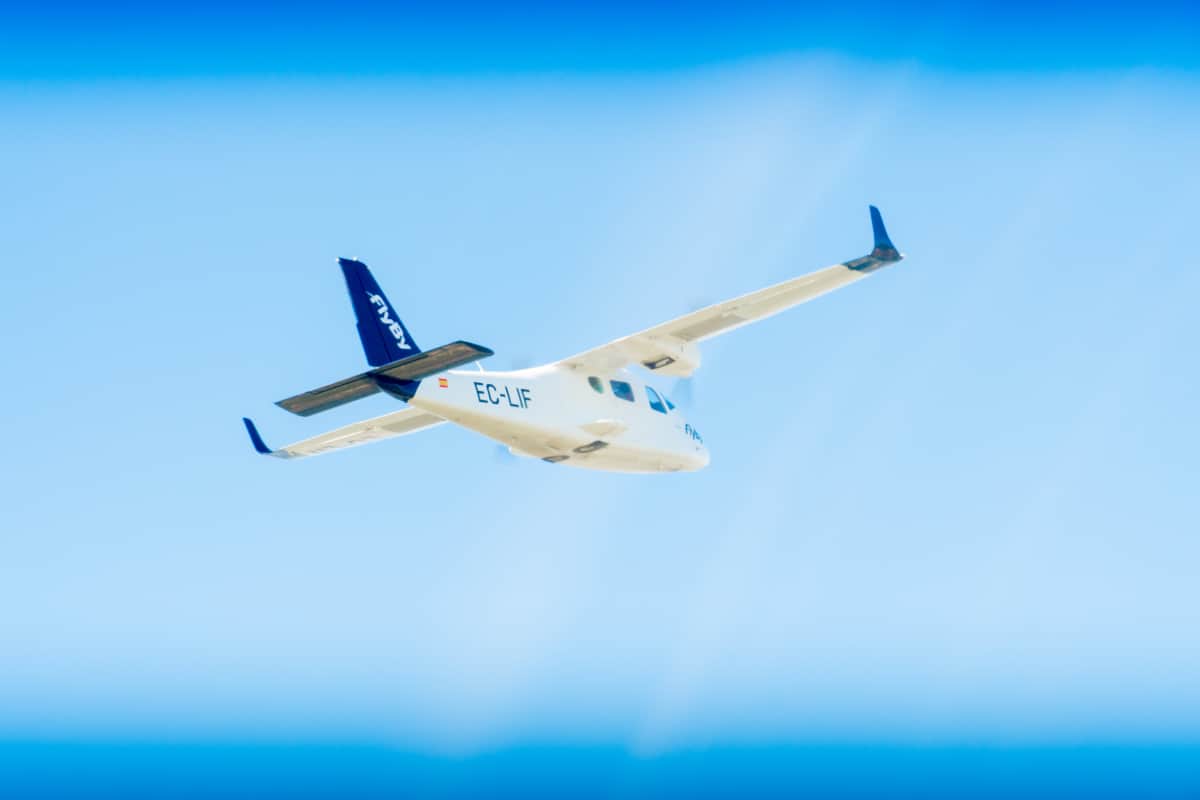Once you have completed your ATPL there are a couple of options available to you. In most cases, FlyBy graduates join airlines and work for them as First Officers. Sometimes, people prefer to gain more experience before they fly a commercial aircraft by flying as a Flight Instructor. Becoming a Flight Instructor can be an extremely rewarding and beneficial path to choose. Some people enjoy it so much that they forgo opportunities to fly commercial airlines and forge careers as instructors and examiners. Here are some things to consider about becoming a Flight Instructor and how it could benefit your future career as a commercial airline pilot.
Personally, I decided to obtain my Flight Instructor licence upon completion of my ATPL training. After not hearing back from airline applications for a couple of months I decided to take things into my own hands. Of course, I knew that if an airline invited me to an interview they would ask about what I have been doing in the past few months. If I show that I am proactively trying to improve myself and my flying skills, that is great for my chances.
Reasons to Become a Flight Instructor
The training I received and the experience I gained whilst teaching others how to fly was exceptionally beneficial towards my own career in aviation. I’m currently a First Officer, but in the future my aim is to become a line training captain (LTC) with one of the major airlines in Europe. During my successful interview with Ryanair, I was able to highlight how my experience as a Flight Instructor will help me throughout my career on the path towards becoming an LTC. Airlines are extremely interested in hiring people who have a long-term outlook, especially those they believe will become a valuable asset to the company in the future. Part of the responsibility that an Airline Captain has is to guide and train the First Officer to become a future Captain. Throughout my time as a First Officer, the Captains I have flown with are encouraging me to improve by sharing their experience and wisdom. The best Captains are those who have experience in instructing and have spent time learning how to teach others. Showing that you have a vision to join a company and develop yourself as well as their business really stands out to the people interviewing you for the position. After all, most airlines are looking to hire future captains and not just temporary First Officers.
Shows You are Able to Handle Responsibility
Being in charge of an aircraft affords you with a lot of responsibility. You will be the pilot in command as the instructor. You are therefore charged with the safety of the flight, those around you and aviation in general. In preparation for this on the Flight Instructor course you receive 130 hours of theoretical classroom training and also 31 hours of flight training in the aircraft. This training will significantly advance your skills in cockpit management and recovery from undesirable aircraft states.
During your Flight Instructor training, the instructor will continue to give you more responsibility and act as the student during the lessons. You will take charge of the lesson planning, pre-flight briefing, aircraft inspection, flight training and post flight debrief. Each stage is vital in the development of the trainee, and you will learn how to share your extensive knowledge and skill with future pilots.
Gain Invaluable Experience and a Leg Up on the Competition
Experience is important in aviation. People often have their dream airline that they wish to work for; however, it is not always that simple. Some of the larger flagship airlines, who have excellent reputations and are always inundated with hundreds of applications, can afford to be more choosy when they are hiring pilots. This means that they are more likely to hire pilots who have more qualifications or experience. For example, if Iberia or KLM is to decide between two pilots who are identical other than the fact that one of them has their Flight Instructor licence, they are always going to choose the pilot who has completed their Flight Instructor training. Experience counts for a lot in aviation and it is common knowledge that when you teach something, you learn a lot more about it yourself. The extra knowledge and experience that comes from being a Flight Instructor can help you stand out from the crowd and will definitely make you a better pilot.
Where to Get Flight Instructor Training
Here at FlyBy we offer a Flight Instructor course and you can find the details of it at this link here: FlyBy Flight Instructor Course.
If you have not yet started your ATPL training, we also have a Cadet Program which is the standard ATPL course, plus flight instructor training with a one year job guarantee as a flight instructor for us here at FlyBy. This is a paid position and there is always the option to extend the one year contract if both you and the chief flight instructor wish to do so. For more details on this course, please contact me and review the information on this page: FlyBy Cadet Program.
At the end of the day, it is a personal choice which you will have to make up on completion of your commercial pilot training. If there are plenty of opportunities within the airlines, it is very likely that you will be able to join as a First Officer straight out of flight school with your Airline Transport Pilot Licence (ATPL). As we are already starting to see as the world recovers from the Covid pandemic, airlines will hire en masse as the pilot shortage starts to reemerge. By summer of next year, when the travel industry is predicted to be back to full capacity, there will be many airlines scrambling to find enough pilots for the demand from holidaymakers and business people alike. For those who are about to begin their commercial pilot training this is excellent news as there are likely to be many jobs available. Nevertheless, a job as a Flight Instructor can set you up for a wonderful career and help you to stand out from the crowd in the application process. Who better to ask than your Flight Instructors? They can tell you about their own choices and experiences.



